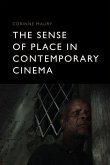Contemporary Political Cinema By Matthew Holtmeier The political films that have emerged on the global film festival circuit since the 1990s mark a shift in cinematic strategies for critically addressing dominant, militant, or otherwise repressive ideologies. From a focus on the representation of oppression in films like The Battle of Algiers, films such as Timbuktu, Nobody Knows About Persian Cats and Chop Shop now contribute to the active formation of political characters and viewers, a form not fully realized until the 21st century due to shifts in information technologies and resulting political organization. This book demonstrates that a contemporary form of political cinema has emerged, centered on the production of subjectivity and networks of protest, which depicts the active formation of political identities that resonates with off-screen protest movements. Matthew Holtmeier is Assistant Professor and Coordinator of Film Studies at East Tennessee State University








